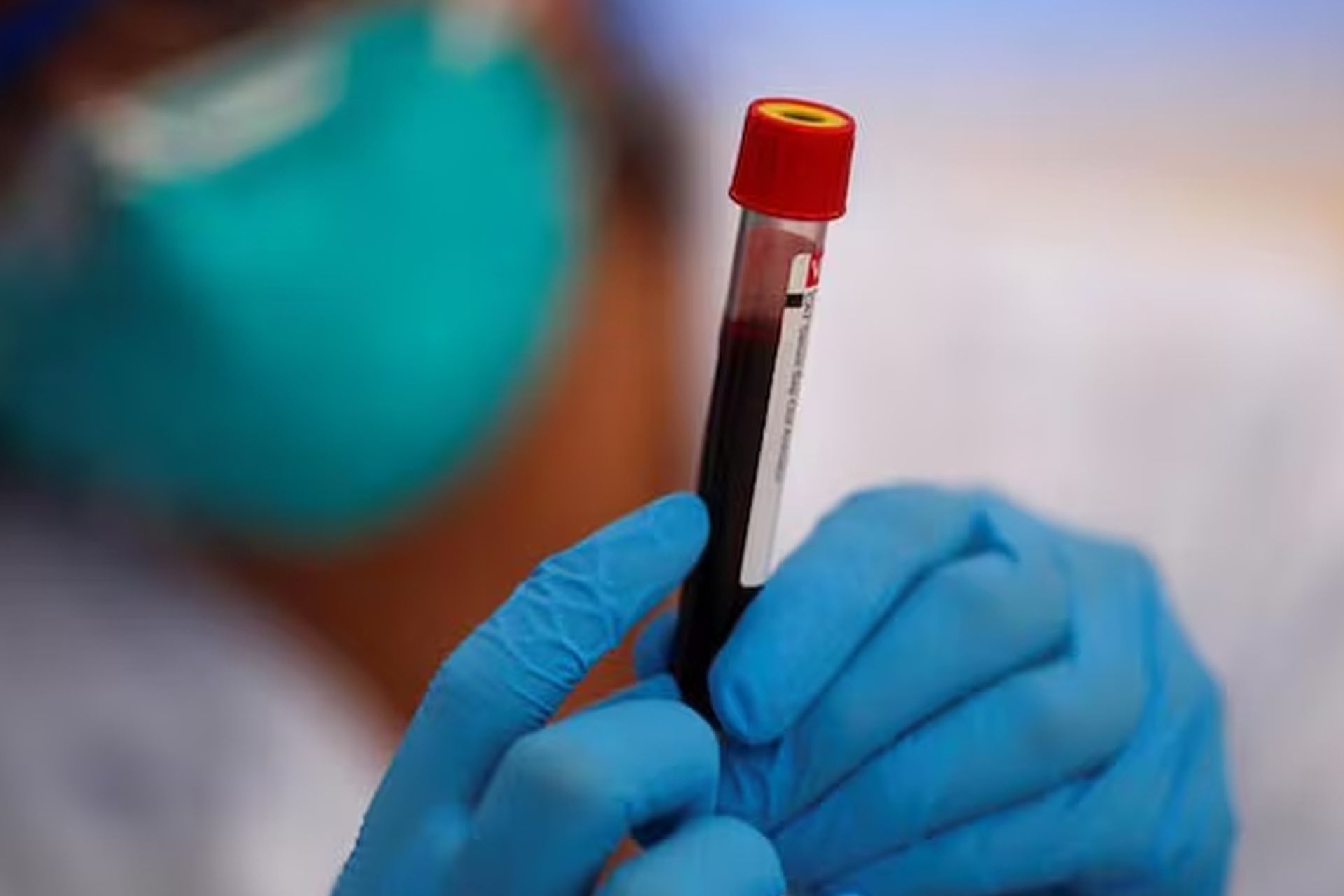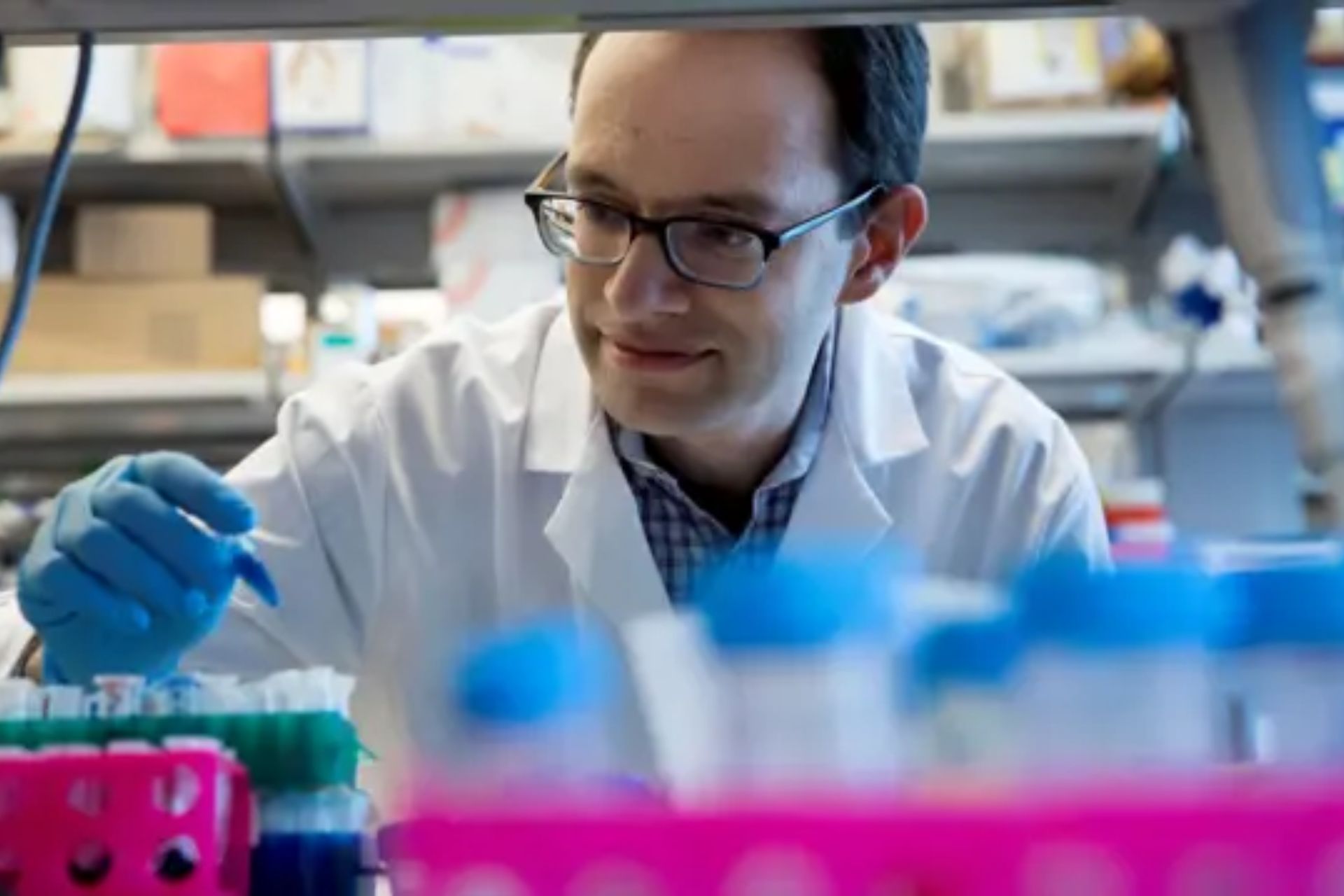
AI’s Role in Detecting Health Issues from Blood Tests
Image Name: AI Detects Blood Test Warning Signs
Image Credit: BBC
When it comes to artificial intelligence, the improvements are tremendous; healthcare is not an exception. The interesting application of artificial intelligence could be when it tests medical data—sometimes even blood test results—to an extent and precision no human can ever imagine. Today, artificial intelligence is being trained to detect early warning signs of medical conditions sometimes even before the onset of symptoms. This technology presents a new frontier in medical diagnostics, thus changing our way of approaching health and perhaps saving lives.
Artificial Intelligence in Medicine:
Artificial intelligence has revolutionized healthcare today. Analyzing vast amounts of data helps one to see trends and connections that would not have been completely visible with the unaided eye. This means in the context of blood testing, the speed and accuracy have been unprecedented for earlier methods as AI can scrutinize blood work much faster and with more precision than any human could. It enables AI to facilitate faster intervention as it can detect abnormalities in blood work, such as a rise in enzymes, proteins, or other parameters that call for further observation.
Machine learning algorithms used in artificial intelligence systems learn with time. Stated differently, individuals improve in terms of their accuracy and precision in identifying real health issues the more input data they have. This ongoing development makes artificial intelligence essential for preventative health care as it helps identify early stages of illnesses including cancer, diabetes, heart disease, and kidney-related issues.
How may artificial intelligence spot warning signs in blood tests?
Perhaps among the most frequently conducted diagnostic tests are blood tests used in hospitals, providing crucial health information ranging from cholesterol levels and indicators of infection or inflammation to a myriad of other aspects. Interpretation of a person’s blood test, however, proves challenging and rather cumbersome. Using artificial intelligence aids physicians and nurses by real-time analyzing the results that indicate patterns and irregularity, thus helping analyze them more critically.
For instance, an artificial intelligence system can be trained to detect early signs of diseases that are otherwise quite challenging to identify at their initial stages. AI could, therefore, detect early signs of cardiac issues, slight renal functioning changes, or cancerous markers in the blood. By massive pre-existing test results of health record databases, artificial intelligence may paint a more comprehensive picture of the health of a patient. It can provide insights missing even from the human eye.
Further, artificial intelligence could potentially let doctors rank their patients and have the possibility of letting the most critical patients go first. Here is a wonderful advantage that can be provided by AI when merged with human talents in pursuit of enhanced results in medicine.
Using AI to Minish Human Error
The major advantage of artificial intelligence in the analysis of blood test results is that it can eliminate human error. While staff in the lab and doctors are also pretty well-trained, the process of interpreting complicated blood test results can be tricky, especially when a test yields several findings that have to be cross-referenced. For sure, AI can ensure nothing is missed and shoulder the onerous task of sifting through huge quantities of data.
More so, artificial intelligence picks out minute tendencies that would even elude humans. A hormone that is balanced at a percent point or a change in blood-cell count may denote an issue at large. With the strong processing power at hand, all the little aspects of such changes ensure emphasis, providing a chance for early diagnosis of the problem and so improving the treatment condition of the patient.

Image Name: Advancements in AI Health Monitoring
Image Credit: Somoy News
Preventive use of Artificial Intelligence
The preventative sector is probably where artificial intelligence finds the most fascinating use in blood testing. Generally speaking, medical treatments normally follow a diagnosis established. Early warning signals brought on by artificial intelligence might turn the emphasis from reaction to prevention. An artificial intelligence system may, for instance, detect early diabetic signs in someone’s blood before they experience them. Knowing this enables clinicians to counsel lifestyle modifications or greater patient monitoring to help prevent the illness from starting.
Similarly, by integrating genetic data with blood test data, artificial intelligence is allowing scientists to better understand hereditary vulnerabilities to such diseases. With the biomarkers that are currently available, this ability to predict future health risks opens up new avenues for the development of personalized medicine with treatments and preventive measures matched for the individual.
Boundaries and Challenges
Although AI technology has various advantages in interpreting blood tests, it still has some difficulties. Guaranturing the accuracy of AI models tops the list among these. Huge datasets enable the devices to learn algorithms. However, when the data is insufficient or biased, the projections provided by the artificial intelligence system could be distorted. It can be misleading towards true positives and also false negative results; so constant monitoring of such artificial intelligence becomes quite relevant as well for verification.
Furthermore, Artificial Intelligence in Health sectors must conform to very rigorous ethics and private guidelines. It is mainly because there remain serious issues about Patient data privatization and transparency levels regarding openness and the liability of Artificial Intelligence Systems in Health Applications.
There will also be the issue of inputting artificial intelligence in current medical setups. Most hospitals and clinics would not have the necessary equipment and structures to input AI-based technologies thus increasing unequal allocation of such advancement. For proper exploitation, the tools must be available for all patients irrespective of their location or practitioner of health.
The prospect of Artificial Intelligence in Healthcare
For artificial intelligence in healthcare, the future seems to be bright. The existence of AI-based technologies is going to be even more widely implemented in the medical diagnostics sector as the technology is developing and becoming fine-tuned further. While not to overlook imaging to genomics where AI will transform every health domain to be personal, efficient, and accessible, blood test analysis is one area where AI waves are striking with full force.
Such a collaboration will be one of the means of realizing those developments between AI experts and physicians. Through teamwork, artificial intelligence will thus sharpen the knowledge that physicians and other clinicians possess such that they end up being weaponed to be more prudent at making decisions; hence, capable of giving good treatment to the patients.
Conclusion
It will revolutionize the sector of artificial intelligence such that it becomes capable of ascertaining signals in blood tests. It is through the analysis of vast data sets and the identification of patterns that would not have otherwise been obvious to the unaided human eye that artificial intelligence is therefore altering the diagnosis and treatment approach used by doctors and other professionals. Better health results and the saving of more lives will surely follow from a change toward prevention with precision and efficiency promised by artificial intelligence. Consequently, the more technology develops, the more likely artificial intelligence will be present in the direction of healthcare.
